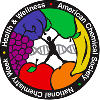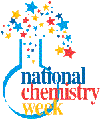Reference Shelf
Key: E = Elementary (K–5), I = Intermediate (6–8), HS = High School (9–12), C = College, G = General Public
- DECISIONS BASED ON SCIENCE. Arlington, VA: NSTA Press, 1997. 144pp. ISBN 0-87355-165-6. (HS, C)
- Making decisions is something we all need to do every day, but it is
a skill that needs to be learned. This book provides a model for teaching
students to use scientific, quantitative methods in their own decision
making. It presents a four-step process: (1) What is the decision to be
made? (2) What should happen following this decision? (3) What do we know
that can help us make this decision? (4) What is the decision? The book
is divided into three parts: background and curriculum, 10 guided
activities, and 14 independent activities that are ready for use. Students
assess risks and make decisions in areas such as smoking, diet, marine
resources, old-growth forests, and growth hormones. Includes resources for
finding more information.
Source: NSTA Recommends - E ENCYCLOPEDIA: THE ULTIMATE ONLINE LEARNING RESOURCE. DK Publishing and Google. NY: DK Publishing, 2003. 448 pp. ISBN 0789498693. (E, I, HS)
- This book provides a general encyclopedic treatment of many academic
areas. The text is accurate and easy to read, and the photographs and
diagrams are eye-catching. DK Publishing has developed a website with
Google.com that provides supplemental links via the Internet to various
other “learning opportunities” on each of the topics it
lists. This resource-within-a-resource is easy to navigate and use.
The web resources include animations, videos, timelines, and real-time
reports, and other related websites. This book and its companion
website can eliminate wasted time surfing the web for specific
information by providing the appropriate links directly from one
website.
Source: NSTA Recommends - EUREKA! SCIENTIFIC BREAKTHROUGHS THAT CHANGED THE WORLD. Leslie Alan Horvitz. NY: Wiley, 2002. 245 pp. ISBN 0-471-40276-1. (HS)
- This collection of mini-biographies will provide students with a sense
of the process of science, along with an appreciation of the role of
chance in so many discoveries. Students will note the role of good
academic preparation, because as Pasteur said: “Chance favors
only the prepared mind.” This book will let your students share
in historical scientific debates, and connect political and social
events to progress in science. The discovery process is given life, as
are the dreams of the discoverer. Students will be fascinated by
stories of Priestley, Kekule, Mendeleyev, the truth about Newton’s
apple, Einstein, Townes, Wegener, Darwin, Crick and Watson, and
Mandelbrot. There is no bibliography of sources cited, but there is an
index and a list of recommended readings.
Source: NSTA Recommends
Copyright © 2004 American Chemical Society


